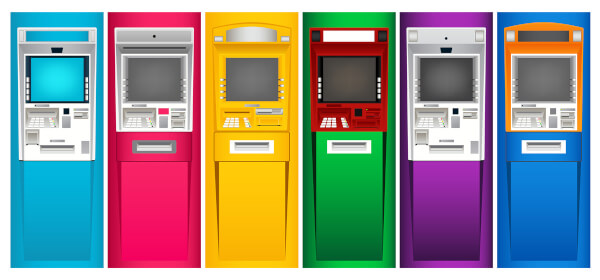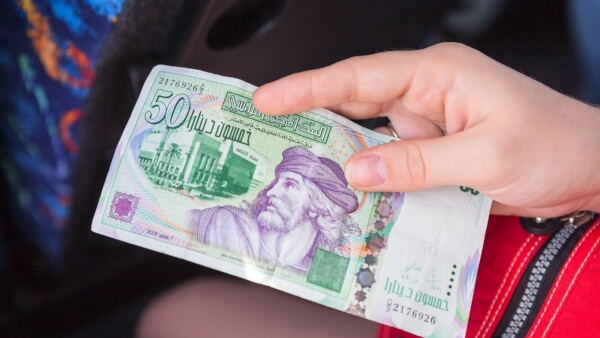Hays travel card review: features, fees and more
Read our Hays travel card review, covering exchange rates, limits, fees and benefits.

If you’re planning a trip or extended stay in another country, one of the first things to check is how using a debit card abroad works.
It may seem easy and convenient to use your existing UK debit card for holiday spending, but there are some serious drawbacks to consider. You could face eye-watering fees and charges for using your debit card in another country.
In this guide, we’ll run through everything you know about using a Visa debit card abroad. This includes potential fees and exchange rates, security and which countries support Visa.
Plus, some info on an alternative which could make spending at shops and the local market for your trip much cheaper - the Wise international debit card. This handy contactless card works in 150+ countries, comes with low fees and automatically converts currency at a fair rate – the mid-market exchange rate.
Your personal preferences and spending habits will dictate whether it’s best to use a debit or credit card abroad. It’ll also depend on the deal you’ve got on your preferred card.
A debit card could be the better choice if you mainly intend to pay for things by card during your trip, or use ATMs in your card’s network to withdraw cash.
Another useful thing to know about is the Global ATM Alliance. This is a network of banks which agree to waive international access fees at their ATMs. They include Barclays, Bank of America, Deutsche Bank and Scotiabank¹ among others.
So, if you use a debit card from a partner bank at an ATM owned by another bank in the network, you can avoid transaction fees (although not currency conversion fees).
As for using credit cards abroad, they could be the better choice if you need to spread the cost of your trip over time. You might even get cashback on spending. You need to watch out for additional interest costs, though, especially for ATM withdrawals.
| Debit card | Credit card | |
|---|---|---|
| Pros | - Convenience for spending - Potentially better exchange rates than cash - Greater security vs. cash | - Spread costs - Cashback/rewards - Potentially better exchange rates than cash - Greater security vs. cash |
| Cons | - High/hidden fees for transactions and currency conversion - Overseas charges could be flagged as fraud | - Immediate interest charges on ATM withdrawals - High interest rates if you don’t pay your balance in full - High fees for transactions and currency conversion |
You can use your UK Visa card abroad to make purchases or withdraw cash, although support for Visa depends on the country and retailer, ATM or other vendor. This includes the international Visa debit card from Wise, which can be used anywhere that accepts Visa.
To withdraw cash from an ATM, you’ll need to know your four digit PIN number.
It’s also helpful to know that most credit and debit cards used in Europe, Canada and Australia will have ‘chip and PIN’ technology.² This is what you’ll be used to in the UK, where you pop your card into a card reader and enter your four-digit PIN.
You may also encounter situations where your card is swiped by the retailer or restaurant, where you need to provide a signature instead of a PIN.
Just like in the UK, contactless payment technology is also very popular in Europe, Canada and Australia.³ This is where you tap your Visa card and go, without needing to enter a PIN number.
To see whether contactless card payments are accepted at a particular retailer, just look for the contactless symbol at the checkout or on the card reader terminal.
While some countries have been slow to embrace contactless payment, you can expect to see more and more of it in the future.
Visa is one of the world’s largest debit and credit card providers. It has a vast global network, so you can use your Visa card in over 200 countries and territories⁴ worldwide.
You can usually use Visa cards anywhere that debit and credit cards are accepted. However, there may be certain countries you can’t use your Visa card in, either because Visa isn’t supported there or for another reason. For example, because of sanctions against the country by your home country.
You’ll need to check before you travel, but examples of places you’re unlikely to be able to use Visa debit abroad include:⁵
Whether you choose to spend abroad using your debit or credit card, you’re going to incur some fees. These include foreign transaction fees, exchange rate markups and ATM fees among others.
When you spend or withdraw money abroad in a different currency, the bank will apply the daily exchange rate set by Visa, to convert your purchase into British pounds (GBP).
Usually you’ll find that this is slightly less favourable than the real exchange rate you find on Google.⁶ On the other hand, if you’re charged in GBP under something called Dynamic Currency Conversion (DCC), you can run into exorbitant markups. But more on that later.
Here’s something to think about. When you spend or withdraw cash overseas with a Wise card, you don’t need to worry about exchange rates. This is because Wise uses the real exchange rate, with no markups or margins added on top.
On top of the margin added to the exchange rate, you might also have to pay a foreign transaction fee when you spend overseas using your Visa debit card.
This is a charge for using your card in another country. It may be a flat fee, but it’s usually a percentage of the amount you spend.
If you’re taking cash out of an ATM, there may also be further charges to pay. Sometimes this is a further percentage added onto the foreign transaction fees you’ve already paid, sometimes it’s a fixed amount per withdrawal. This is important to understand, as taking out larger chunks of cash might be better if you have a fixed fee per withdrawal.
It’s also worth reading the fine print, as some individual banks or ATM providers might levy their own fees on top of your bank charges.
If you want to avoid ATM fees and make withdrawing cash a little cheaper, remember the Global ATM Alliance we mentioned earlier. This is a network of banks including Barclays, Bank of America, Deutsche Bank and others that waive fees at their ATMs if your card is provided by one of the banks in the network. Here is also a list of the European countries that charge the highest ATM fees.
You might also be asked if you want your purchase to be processed in GBP instead of the local currency of the country. This is something sold to customers as a service, and known as Dynamic Currency Conversion (DCC). It sounds super convenient, but don’t be fooled. It should most definitely be avoided.
DCC can be applied nearly anywhere your card is accepted overseas. You might be asked at an ATM, restaurant or store if you’d like to pay in Sterling. If possible, choose to pay in the local currency.
This is because the foreign currency exchange rates applied when using DCC are never as good as those your card provider gives. You’re basically giving the local company or ATM machine permission to use its own, mostly poor, exchange rates.
Your bank has an interest in ensuring you’re happy with their services. A foreign provider has no such obligation, so has no problem marking up an exchange rate and pocketing the difference.
Some digital banks in the UK such as Starling⁷ and Chase⁸ offer debit cards that can be used abroad with no transaction fees. Some ATM providers abroad may still charge their own fees.
Another convenient and low-cost option for spending abroad is Wise. You can use the Wise international debit card in 150+ countries, with no foreign transaction charges.
There’s only a small, upfront fee for converting the currency - which happens at the real exchange rate - but it could work out many times cheaper than using your bank.
Visa advises that you tell your bank if you’re travelling abroad.⁹ Some banks no longer insist on this step, so you’ll need to check with your local branch or online. But it could be a good idea to tell your bank anyway, especially if you’ll be away for a while.
You should also ensure your bank has your contact details. This is just in case any overseas payments are mistakenly flagged as fraud. For example, if you spend a large amount in a far-flung country. Your bank’s anti-fraud team could block the payment, or even block your card. This could cause disruption to your trip.
It could also be worth taking a backup card with you, just in case there’s a problem with your usual card.
After reading this guide, you should be fully clued-up on the ins and outs of using debit cards abroad. The main thing to remember is that your travel spending could become seriously expensive if you forget about all those hidden fees and exchange rate markups.
But your holiday is no time to worry about money. Use these tips to stay safe while you spend abroad, and make sure you know what fees and charges you need to plan for. Then all you have to do is relax and enjoy!
Sources used:
Sources last checked on date: 18-Aug-2022
*Please see terms of use and product availability for your region or visit Wise fees and pricing for the most up to date pricing and fee information.
This publication is provided for general information purposes and does not constitute legal, tax or other professional advice from Wise Payments Limited or its subsidiaries and its affiliates, and it is not intended as a substitute for obtaining advice from a financial advisor or any other professional.
We make no representations, warranties or guarantees, whether expressed or implied, that the content in the publication is accurate, complete or up to date.

Read our Hays travel card review, covering exchange rates, limits, fees and benefits.

Read our TUI travel card review, covering exchange rates, limits, fees and benefits.

Read our guide on ATMs abroad including networks, locations and tips on how to avoid ATM fees abroad.

If you’re a Barclays customer, have a Barclaycard or hold a Barclays debit card, get familiar with fees and how to use your card abroad in our article.

What is the best currency to take to Cape Verde? Read our guide on currency in Cape Verde, accepted payment methods and more.

What is the best currency to take to Tunisia? Read our guide on currency in Tunisia, accepted payment methods and more.